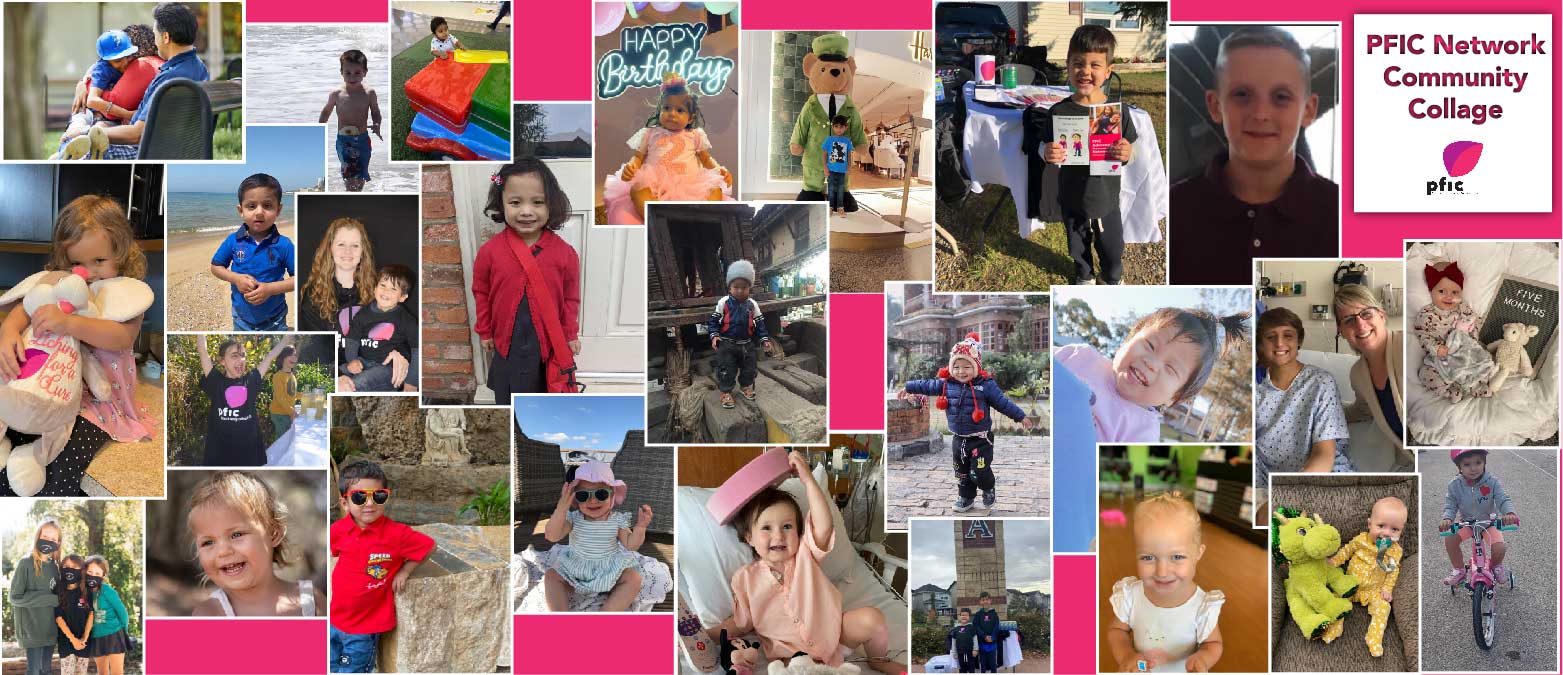It’s Okay To Feel This Way:
Navigating Emotions as a PFIC Parent
By Lisa Jensen
In Rare Siblings, we wrote that the best support for siblings of rare disease patients comes in the form of accurate information, open communication, and emotional validation. Today’s post explores the topic of emotional validation in depth. We explore how to offer that validation to yourself, but the skills needed to offer it to your child are the same.
Living with PFIC—either as a patient or as a family member—often means living with some pretty intense feelings. It is natural to feel anxious or afraid. It is natural to feel angry, resentful, overwhelmed, or guilt-ridden. It is also natural to feel hopeful or grateful. There is no wrong feeling—there are just more and less helpful ways to navigate the feelings that come up.
Beliefs can be wrong; feelings cannot.
Why does this matter for PFIC families? Well, the fact is that it matters for all families, but families living with rare disease tend to have an extra-large serving of feelings on their plate. Odds are, you’ve become an expert on topics like the human liver, PFIC treatments, and nutrition. Developing a bit more expertise in how to relate to difficult feelings could prove to be similarly impactful for you and for your entire family. How individuals and families manage feelings affects everything, from decision making to relationship quality to physical and mental health. When we think of physical health—for ourselves or our children—we often think about what goes into a body. For example, we think about medications and food. The way we respond to our feelings impacts the chain of chemical responses within our own bodies, and the way we respond to our children’s feelings has the potential to do the same. How we respond to feelings, then, is also a health issue. It’s a health issue, and it’s a happiness issue.

Let’s take that basic statement—how we respond to feelings is a health issue and a happiness issue—and then use the response an individual might have to that statement as an illustration of how our relationship to our beliefs and feelings impacts well-being. Let’s imagine two parents of kids with PFIC reading that statement. Parent 1 reads those words and thinks “See, it is my fault, then. I’m so bad at handling my own feelings, and that’s making everyone miserable. Maybe the stress of that is even making my daughter’s itching worse.” With these thoughts comes a surge of anxiety and feelings of overwhelm and isolation.
Parent 2 reads the same words and thinks, “I’ve been feeling so powerless, but maybe there is something impactful I can do right now after all. If I work on how I respond to my own feelings, maybe I can help my child to feel safer and more supported. That’s what every kid needs. And who knows, over time that might even create positive health impacts, too.” In the wake of these thoughts, Parent 2 feels suddenly energized and hopeful.

Now here’s the key piece: Parent 1 is not wrong to feel anxious, overwhelmed, or isolated. Their feelings make perfect sense in light of their thoughts and beliefs and circumstances. Anxiety, overwhelm, and isolation are deeply uncomfortable feelings, though. And so, what’s likely to happen next is that Parent 1 may attempt to chase away their own feelings. They might do this through self-criticism or through numbing or distraction. The trouble is that when we resist feelings, they tend to get distorted or amplified. They leak out in unexpected ways—for example, panic attacks, episodes of rage, physical illness, exhaustion, depression, insomnia, or difficulty focusing.
What might Parent 1 do instead, in the wake of their own genuinely scary thoughts?
They might begin by showing kindness to the part of them that is having these feelings. This sounds strange if it isn’t something you’ve tried. But think about how it feels in real life to have someone criticize you for having a particular feeling, or how it feels to be told to “suck it up,” versus how it feels to have someone say, “You sound really anxious. That makes total sense. I’ve been there before, too. I’ve got time if you want a listening ear.” The “suck it up” response generally leaves a person feeling more alone in their anxiety, which only makes the anxiety bigger. The compassionate response does the opposite. It wraps around the anxiety in a way that, all on its own, can already begin calming the intensity of that feeling.
To be kind to the part of yourself that’s having this or that feeling simply means to acknowledge the feeling and to validate it. “You’re feeling really angry. That makes sense.” Or “You’re scared. I get it. I bet every other parent of a sick child has felt like this before.”
This simple step of acknowledging and validating your own feelings can transform your inner landscape. The same step, practiced in your relationships, can be transformative for others, too. Think of this as a gift that you can offer to yourself, your children, and your partner—one that can interrupt the spiral of stress that so many families (both with and without PFIC) experience on a daily basis. Every member of your family is likely to have a different experience of PFIC and a different set of feelings about it. Treating each of those feelings as valid creates a culture of connection, trust, and safety that makes it easier to weather storms.

As you get more comfortable offering yourself compassion by acknowledging and validating your own feelings, you might naturally find your way into a second transformative practice: questioning the thoughts that are adding to your suffering. There are plenty of cold, hard facts about which there is no question: the fact that your child has PFIC, for example. But for every basic fact in our life, we have dozens of thoughts that we treat as facts, though when it comes down to it, they are actually just beliefs.
Here are two contrasting examples of beliefs that a PFIC parent of multiple children might have: All of my children will grow up scarred by this experience, or on the other hand, our family will be stronger, more compassionate, and more resilient because of this experience with PFIC. Because both of these thoughts are making predictions about the future and because there is some subjectivity to their claims, neither of these are facts perse. They are beliefs. One of these beliefs is likely to help the parent feel deeper peace in times of uncertainty, help them find the strength to live their values, and help them take steps to nourish their own resilience and the resilience of their children. The other belief is more likely to contribute to a sense of overwhelm and powerlessness, making it harder for that parent to take steps to nourish their own emotional well-being or the emotional well-being of their child.

There are two key takeaways here:
1) Some thoughts are helpful to us and some are not.
If a thought isn’t an actual fact and adds to your overwhelm, decreases your capacity to live your values, or makes you feel generally miserable, it’s time to consider what other thoughts or beliefs might be reasonable in the same situation.
2) We will all show up as Parent 1 in some moments.
We all have thoughts that are untrue and unhelpful. When you catch yourself in one (or in the flood of uncomfortable emotions it brings with it), begin by offering yourself compassion or humor or understanding rather than criticism. They are the most effective tools for softening difficult emotions and shifting unhelpful thoughts. Learning to be more compassionate toward yourself (and your full, wide range of feelings, including the uncomfortable ones) takes time. Shifting your thoughts requires patience and grit and trial and error. If you need support in this process, consider contacting a therapist, or reach out to us at mentalhealthsupport@pfic.org to try a one-on-one coaching session
